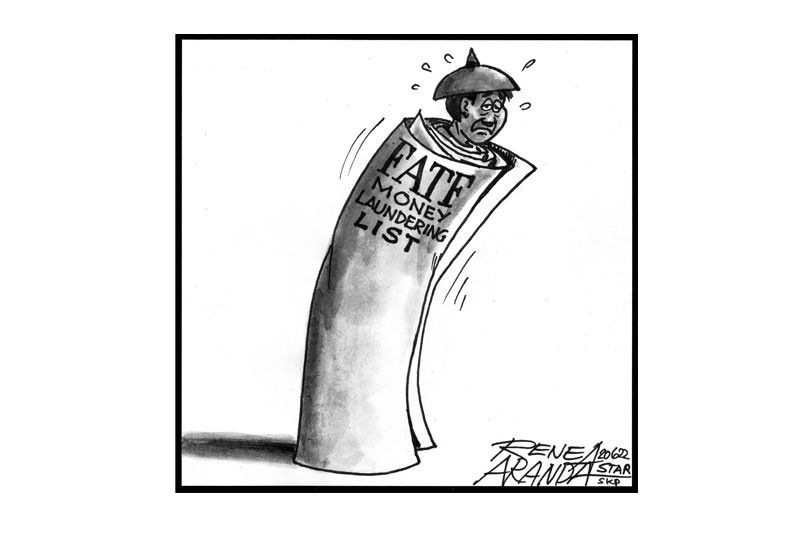EDITORIAL - Still in the gray list

With prices of fuel and basic commodities soaring, the peso weakening and the country mired in debt that hit P12.76 trillion as of end-April, the government badly needs to ensure that the Philippines’ financial house is in order.
As of this month, however, the country remained in the so-called gray list of the global anti-money laundering watchdog, the Paris-based Financial Action Task Force. The Philippines joins 22 other countries in the gray list that was released at the end of the FATF’s hybrid plenary from June 14 to 17.
Those on the gray list are considered as threats to the international financial system. With tighter scrutiny from regulators and financial institutions, the cost of doing business with Filipinos rises, which could aggravate inflation. Transaction proceedings are slowed down.
The Philippines was first blacklisted by the FATF in 2000, and was removed in February 2005 following the implementation of the Anti-Money Laundering Act. Weaknesses in the AMLA, however, put the country on the FATF gray list in June 2012, with the dirty money watchdog flagging loopholes in going after terrorism and proliferation financing, tax evasion and laundering through casinos. The country was removed from the list in 2013, but was returned shortly before the pandemic, sharing the list with Haiti, Malta, Pakistan and South Sudan.
In 2016, the Philippines was described as a black hole in global finance, with one of the world’s toughest bank secrecy laws, after hackers stole $80 million of the Bangladesh government’s money from the Federal Reserve Bank of New York and electronically funneled the cash to a Philippine bank through the country’s casinos.
This time, the FATF wants the Philippines to address strategic deficiencies in supervising designated non-financial businesses and professions and mitigating risks associated with casino junkets. The FATF also wants enhanced access of enforcement agencies to beneficial owners information that must be up-to-date and accurate.
The Philippines should also tighten financial supervision of non-profit organizations without disrupting their legitimate activities, show greater use of financial intelligence, and intensify probes and prosecution of money laundering and terrorist financing cases, according to the FATF.
From the start, there has been strong resistance in this country to global anti-money laundering measures. Lawmakers took years to include corruption, tax evasion and terrorist financing among the predicate crimes covered by the AMLA, and to include casinos among the covered establishments. Lawmakers have also resisted proposals from finance officials to ease bank secrecy laws. Ordinary Filipinos, including those working overseas, suffer the consequences.
- Latest
- Trending


























